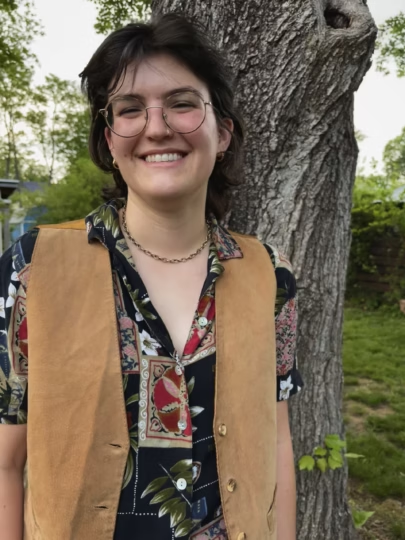What’s your name?
Lana Swartz
What’s your department?
Media Studies, Associate Professor and Shannon Mid-career Fellow
What’s your hometown?
Miami, Florida
How are you connected to TYDE?
Next year, I will welcome a post-doctoral researcher to work on a TYDE seed grant-funded project on youth financial well-being in the digital environment.
What’s your research about? What parts of it are the most exciting to you?
I study various aspects of the digital economy. I want to understand how people make sense of their financial lives in a rapidly changing technological and economic environment. I also want to understand how the design and business model choices made by fin tech companies impact people, especially the most vulnerable. I have looked at cryptocurrency communities, new payment systems, how small business owners use social media, and new forms of AI scams. I love what I do because I feel like I am asking extremely important questions that directly contribute to people’s well-being for which there are no easy answers.
In your opinion, what are the main challenges that young people face navigating the world of digital technology and/or social media?
Technology has changed much faster than our norms around it, and because so much of our lives are lived through social media, that means the norms around pretty much everything are in flux. It’s hard to know what advice to give young people as they navigate the digital world. You can’t tell them to do things as they’ve always been done and pretend nothing has changed, but at the same time, you can’t tell them to follow untested paths. Should young people invest in cryptocurrency or meme stocks? Should they try out new forms of digital entrepreneurship? What kind of financial information should they believe? There is so much risk. Drawing from my research, I’ve begun calling it the FOMO or YOLO economy. People are driven by Fear of Missing Out, and they are always reminded that You Only Live Once. And these may well be legitimate concerns, but we don’t yet have good tools to say for sure. I pay particular attention to economic and financial issues, but I think the same is true for many aspects of life.
If you were the U.S. digital technology czar, what kinds of policies would you recommend to help young people thrive?
I think we need to take financial literacy seriously, and we also need to rethink it for the digital age. By all measures, young people have very low rates of financial literacy. On top of that, financial literacy measures and interventions have not kept pace with the digital environment. The same is true for consumer protection. More than ever, we need good consumer protection policies not just for financial services but for the things we buy online, the apps we install on our phones, and more. But traditional approaches to consumer protection often feel paternalistic, or at least out of step with how we live our lives. We need to work harder to get it right.
How do you use digital technology in your daily life?
I use technology in all the usual ways you’d expect of an elder millennial with a young family. Because I study digital media, I think I’m a little bit more willing to try out it out, but I am also a bit more cautious because I know how the sausage is made. Right now, I am having a lot of fun with vintage shopping Substack newsletters and tracking down unusual items on eBay.







